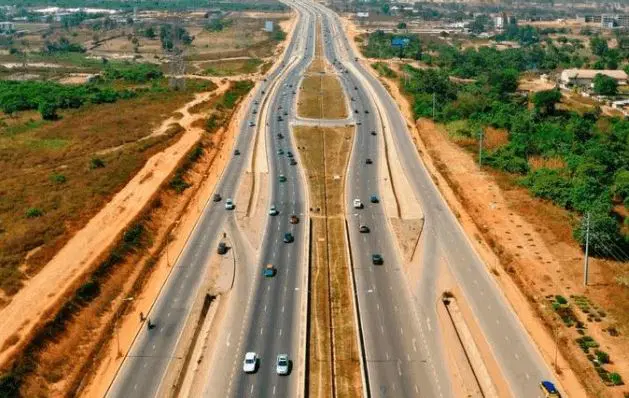AEC Unity Network Limited has announced that its long-awaited 470-kilometre Abuja–Lagos Superhighway Project is on the verge of commencement, a development expected to cut down travel time between Nigeria’s commercial capital and the Federal Capital Territory (FCT).

Speaking at a press briefing in Lagos on Tuesday, the Chairman of AEC Unity Network Limited, Dr. Kenny Martins, said the project, valued at $4 billion, would revolutionise road transportation in Nigeria by offering a faster, safer, and more efficient alternative to the current road networks.
A Legacy Infrastructure Project
Dr. Martins described the superhighway as more than a transport corridor, stressing its transformative potential.

“This is more than just a road. The Abuja–Lagos Superhighway will be a legacy infrastructure project that transforms how people and goods move between the Federal Capital Territory and Lagos,” he said.
He explained that the expressway would support vehicular speeds of up to 80 kilometres per hour, dramatically reducing the current travel time between Abuja and Lagos.

Route and Economic Benefits
According to him, the highway would open up rural communities, create thousands of jobs, and stimulate economic activity across the states it traverses.
The planned route will run through Lagos, Ogun, Oyo, Osun, Ekiti, Kwara, Kogi, Niger, and Abuja, with additional spurs to Ondo State and the Baro Port in Niger State, a linkage designed to strengthen regional trade and ease cargo movement.

“It will bypass congested corridors, making it faster and cheaper for commuters and businesses to travel between the two major cities,” Dr. Martins explained.
Government Collaboration
The AEC chairman further disclosed that the project is being executed in partnership with the Federal Executive Council (FEC), the Infrastructure Concession Regulatory Commission (ICRC), and the Federal Ministry of Works, under the leadership of Minister Engr. Dave Umahi.
He emphasised the long-term importance of the project, framing it as an investment in Nigeria’s future generations.

“This road is not just for today. It is for our children and grandchildren. By God’s grace, very soon we will all be driving on this superhighway,” he said.
National Expectations
The Abuja–Lagos Superhighway, once completed, is expected to drastically cut travel hours, ease logistics bottlenecks, and provide a modern transport backbone linking the country’s administrative and economic hubs.

Observers say the project, if delivered as planned, will mark one of the most ambitious transport infrastructure developments in Nigeria’s recent history.




